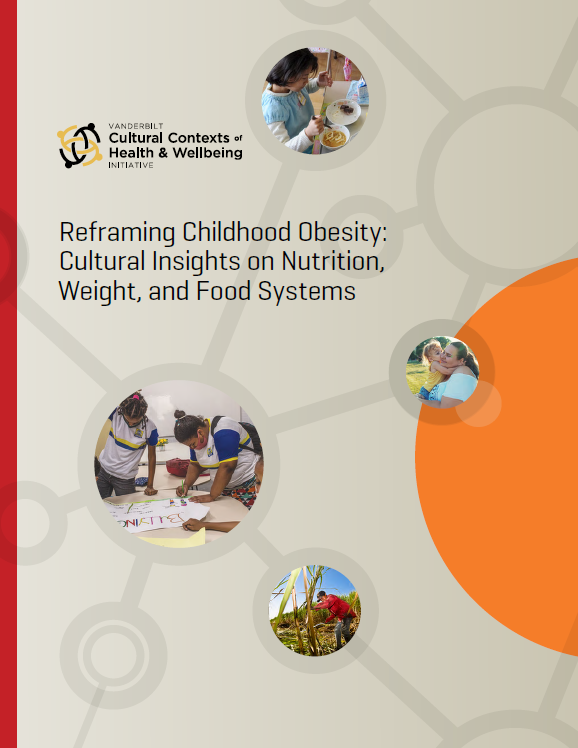
-
Download document
Inglés (pdf, 4,74 MB)
Reframing Childhood Obesity: Cultural Insights on Nutrition, Weight, and Food Systems
As a disease, obesity is defined as excess adipose tissue that presents a risk to health. This definition allows for the fact that some types of body fat are associated with increased risks of metabolic illness, such as type 2 diabetes, while others are not. In practice, however, categories of “overweight” and “obesity” are defined by excess overall weight measured by Body Mass Index (BMI, kg/m2), which turns out to be a poor predictor of individual metabolic health. Since 1975, the prevalence of children classified as overweight or living with obesity based on BMI increased more than four-fold, from 4% to 18% globally. As a result, childhood obesity has been declared a global epidemic, and public health efforts around the world have mobilized to improve children’s diets and weight-related health outcomes.
Based on the conventional energy-balance model (weight gain results from more calories consumed than expended), obesity has long been seen as the result of personal choices, with interventions largely focused on changing individual behavior around diet and exercise. While improving nutrition and levels of physical activity is beneficial, focusing on individual choice can unintentionally contribute to weight discrimination, feeding into deep-seated cultural narratives that see being overweight as the result of a lack of self-discipline or a moral failing.
An emerging consensus in the field of obesity research points to the need to look beyond individual choices to address upstream cultural, commercial, and structural factors that produce obesogenic environments. This report contributes to that work. We show how public health programs can work with, not against, cultural traditions and norms–harnessing local creativity to change nutritional outcomes. We point to widespread weight discrimination, even in clinical settings, and the limitations of BMI as a diagnostic measure. Bringing in the perspectives of those living in large bodies, and acknowledging that shaming is an ineffective public health tool, we adopt a justice framework in which all body types are seen as deserving of health and health care. Recognizing that childhood nutrition and obesity result from the interaction of complex physiological, cultural, and commercial systems, we document holistic approaches to show how policy silos can be overcome to produce more equitable and effective health outcomes.




